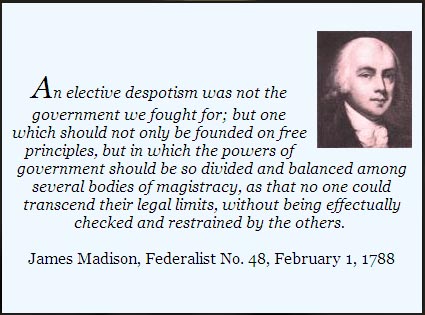I know some of you won’t be interested in this, but I’m gonna write it anyway …
The Right Blogosphere has become even more unhinged over the Mohammed cartoon riots as they did over the French riots. Just check out the links on Memeorandum.
Apparently the Danish cartoons came about because a Danish author was having trouble finding an illustrator for a book about Islam. Arthur MacMillan wrote for The Scotsman that publication of the cartoons was “intended to generate a debate about freedom of speech.” Well, it’s done that. Andrew Sullivan said that “The cartoons were not designed to ‘incite religious or ethnic hatreds.’ They were designed to protest such incitement – and we have the corpses of Theo van Gogh and Pim Fortuyn as useful proof.”
Whatever the original inspiration, most of the cartoons did not focus on the acts of particular Muslims but instead depicted Mohammed and Muslims in general as homicidal whackjobs. So some bad acts incited more bad acts, which incited violence among Muslims, which incited some Europeans to republish the cartoons to show they weren’t gonna let Muslims tell them what to do, and the violence got worse, and now the nice doggie’s readers are stocking up on ammo. I don’t know if anyone’s been killed yet, but if no one dies before this firestorm dies down it’s going to be a miracle.
It occurred to me that this episode is a textbook example of karma. I was taught by the Zennies that the Sanskrit word karma means action, in particular actions created willfully by both deeds and words. In other words, it’s all about cause and effect. Karma has its own law of physics; once set in motion, it tends to stay in motion. So, for example, Bill may have a hard day at work and come home and yell at Mary, who then loses her temper and takes it out on Junior, who kicks the dog. That bad temper being passed from one person to another is karma.
This cartoon flap is karma writ large.
I am repelled by violence, and I admit I am repelled by Muslims’ violent reaction to the cartoons. But the way to respond is not to work oneself into a self-righteous hateful snit, as our home-grown righties are doing, and use the violence as an excuse to hurl hatespeech back. The way to respond is, first, to refuse to be baited. Refuse to hate back. This is, I believe, what Jesus was reaching to when he said “turn the other cheek.” I’m sure it’s what the Buddha meant when he said,
Occasions of hatred are certainly never settled by hatred. They are settled by freedom from hatred. This is the eternal law.
Others may not understand that we must practice self-control, but quarrelling dies away in those who understand this fact. — The Buddha (the Dhammapada, Pairs 3-6)
The consensus on the Right is that “we’re better because we’re not rioting and burning stuff and issuing death threats. We are verbal haters only.” That won’t win ’em any Buddha points; thoughts and words create evil karma as well as deeds.
I’m not calling for toleration of lawbreaking and violence. As I said, I am repelled by death threats and acts of vandalism. I can’t control what people do in their own countries, but if Muslims in Europe don’t get control of themselves I suspect law enforcement will take control for them. I don’t see any way around that. Most western nations take a dim view of gangs of people using violence and threats to prevent citizens from personal and lawful activities. (The United States may be one of the few exceptions — the anti-abortion rights terrorists are getting away with shutting down abortion clinics all over the country. But that’s another rant.)
But the more I think about it, the clearer it is to me that newspapers that choose not to republish the cartoons are acting correctly. I agree with this Boston Globe editorial —
This was a case of seeking a reason to exercise a freedom that had not been challenged. No government, political party, or corporate interest was trying to deny the paper its right to publish whatever it wanted. The original purpose of printing the cartoons — some of which maliciously and stupidly identified Mohammed with terrorists, who could want nothing better than to be associated with the prophet — was plainly to be provocative. Islam prohibits the depiction of Mohammed in any way, whether the image is benign or not.
Other European papers reprinted the cartoons in a reflex of solidarity. Journalists in free societies have a healthy impulse to assert their hard-won right to insult powerful forces in society. Freedom of the press need not be weakened, however, when it is infused with restraint. This should not be restraint rooted in fear of angering a government, a political movement, or an advertiser. As with the current consensus against publishing racist or violence-inciting material, newspapers ought to refrain from publishing offensive caricatures of Mohammed in the name of the ultimate Enlightenment value: tolerance.
Just as the demand from Muslim countries for European governments to punish papers that printed the cartoons shows a misunderstanding of free societies, publishing the cartoons reflects an obtuse refusal to accept the profound meaning for a billion Muslims of Islam’s prohibition against any pictorial representation of the prophet. Depicting Mohammed wearing a turban in the form of a bomb with a sputtering fuse is no less hurtful to most Muslims than Nazi caricatures of Jews or Ku Klux Klan caricatures of blacks are to those victims of intolerance. That is why the Danish cartoons will not be reproduced on these pages.
I admit my opinion is based more on religious philosophy than political philosophy. Politically, the issue is more dicey.
Eugene Volokh is pissed at the Boston Globe because he couldn’t find condemnation of the famous “Piss Christ” photograph in their archives, possibly because the Jesus-soaked-in-pee photo was in the news in the late 1980s and the Globe online archives don’t seem to go back that far. As for the Brooklyn Museum’s display of “the Virgin Mary covered in feces” — I don’t believe that’s accurate. As I remember, the work in particular did not “cover” the image of the Virgin in feces; rather, the image was rendered in medium made partly of elephant dung. (Whether the art was disrespectful or not depends on the beholder, seems to me. I once saw a Zen student make a Buddha out of dog poop and set fire to it, as a demonstration that all things are buddha and also impermanent. The monks were fine with this.) Anyway, the Globe defended the art, which Volokh found inconsistent.
Maybe. Again I am guided by Buddhism, which teaches that purity of motive is essential to purity of action. From that perspective, if the Globe reprinted the Mohammed cartoons it would be an impure act, because they would be doing it only to “get back” at the rioting Muslims. The cartoons are not up to the Globe’s standards and would not have been published for any other reason. If the cartoons were something the Globe wanted to publish for their own sake, however, that would make publishing them an entirely different act even if the Muslims were rioting about them.
I know this sounds convoluted, but that’s how I see it.
Update: Juan Cole takes a stab at explaining the Muslim perspective.
Update update: See also Joe Gandelman: “…some editors don’t feel they have to publish them to maintain their right to publish them or show that they have this right.”
Update update update: A cartoonist’s perspective.

 I have one other argument against publishing the cartoons — they’re stupid cartoons. They’re crude. You may disagree, but IMO their only point is that Mohammad (and Muslims) are bad. They remind me of old war cartoons depicting “the enemy” in a way that makes us a tad squeamish when we look at them now.
I have one other argument against publishing the cartoons — they’re stupid cartoons. They’re crude. You may disagree, but IMO their only point is that Mohammad (and Muslims) are bad. They remind me of old war cartoons depicting “the enemy” in a way that makes us a tad squeamish when we look at them now. 